The Lion's Share
Inequality and the Rise of the Fiscal State in Preindustrial Europe
Part of Cambridge Studies in Economic History - Second Series
- Authors:
- Guido Alfani, Università Commerciale Luigi Bocconi, Milan
- Matteo Di Tullio, Università degli Studi di Pavia, Italy
- Date Published: January 2019
- availability: This ISBN is for an eBook version which is distributed on our behalf by a third party.
- format: Adobe eBook Reader
- isbn: 9781108757591
Find out more about Cambridge eBooks
Adobe eBook Reader
Other available formats:
Hardback
Looking for an inspection copy?
This title is not currently available on inspection
-
This is the most in-depth analysis of inequality and social polarization ever attempted for a preindustrial society. Using data from the archives of the Venetian Terraferma, and compared with information available for elsewhere in Europe, Guido Alfani and Matteo Di Tullio demonstrate that the rise of the fiscal-military state served to increase economic inequality in the early modern period. Preindustrial fiscal systems tended to be regressive in nature, and increased post-tax inequality compared to pre-tax - in contrast to what we would assume is the case in contemporary societies. This led to greater and greater disparities in wealth, which were made worse still as taxes were collected almost entirely to fund war and defence rather than social welfare. Though focused on Old Regime Europe, Alfani and Di Tullio's findings speak to contemporary debates about the roots of inequality and social stratification.
Read more- Proposes a new theory about the main reasons behind inequality growth in the early modern period
- This book is the first systematic analysis of the prevalence of rich and poor in preindustrial societies
- Offers a model study of inequality in a preindustrial society that could be replicated for other European areas
Reviews & endorsements
'Guido Alfani and Matteo Di Tullio take two giant strides forward in the early history of inequality. First they expand our view of Europe's wealth inequalities over several centuries and across regions. Then they show how the state itself may have been a significant source of the rise in inequality, with its growing fiscal pressure on the poor.' Peter H. Lindert, co-author of Unequal Gains: American Growth and Inequality since 1700
See more reviews'This is a monumental, first-ever study of income and wealth inequality, and impact of taxation and public expenditures in the Republic of Venice. Alfani and Di Tullio apply to the archival sources of Venice all the modern tools of inequality analysis. But the study does not aim only to shed light on the past, it uses the story of Venice to engage in a lively conversation with the present.' Branko Milanovic, author of Global Inequality: A New Approach for the Age of Globalization
'Economic inequality has a long history, which this book excavates in light of fresh data. It paints a grim picture of the lasting effects of regressive fiscal policies and opens up new research agendas. One of the most substantial contributions to the recent economic history of pre-industrial Europe.' Francesca Trivellato, author of The Familiarity of Strangers: The Sephardic Diaspora, Livorno, and Cross-Cultural Trade in the Early Modern Period
'Based on extensive quantitative and qualitative research from archival documents, this book presents new data and new conclusions on an important and timely topic - the steady growth of inequality in societies across early modern Europe from the Black Death to the end of the eighteenth century.' Samuel Cohn, Jr, author of Epidemics: Hate and Compassion from the Plague of Athens to AIDS
Customer reviews
Not yet reviewed
Be the first to review
Review was not posted due to profanity
×Product details
- Date Published: January 2019
- format: Adobe eBook Reader
- isbn: 9781108757591
- contains: 33 b/w illus. 1 map 21 tables
- availability: This ISBN is for an eBook version which is distributed on our behalf by a third party.
Table of Contents
List of figures
List of tables
Acknowledgements
Introduction
1. The Venetian fiscal system: centre and periphery
2. The rich and the poor
3. Economic inequality in the long run
4. Taxation, redistribution and inequality
Appendix: building regional distributions of wealth for the Republic of Venice and for Veneto
Archival sources
Printed sources
Bibliography
Index.
Sorry, this resource is locked
Please register or sign in to request access. If you are having problems accessing these resources please email [email protected]
Register Sign in» Proceed
You are now leaving the Cambridge University Press website. Your eBook purchase and download will be completed by our partner www.ebooks.com. Please see the permission section of the www.ebooks.com catalogue page for details of the print & copy limits on our eBooks.
Continue ×Are you sure you want to delete your account?
This cannot be undone.
Thank you for your feedback which will help us improve our service.
If you requested a response, we will make sure to get back to you shortly.
×
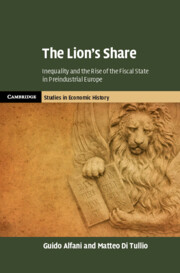


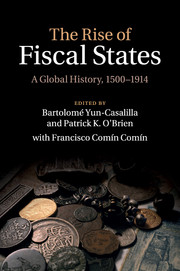
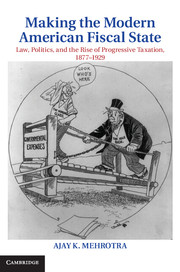
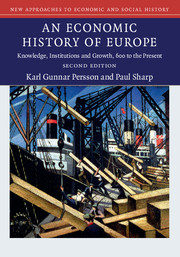

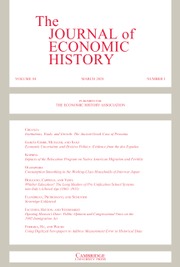





.jpg)
.jpg)
